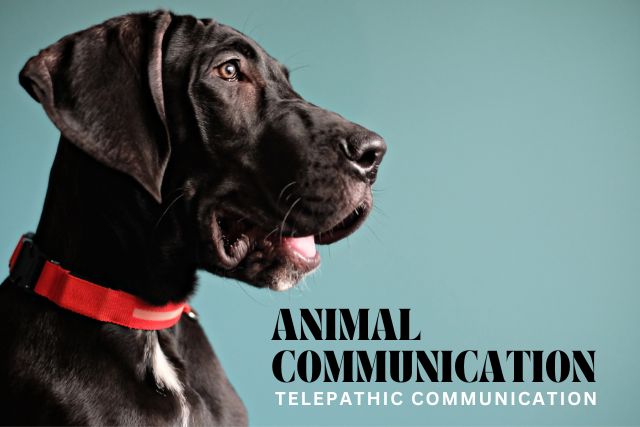Are you wondering how to support your dog after they’ve lost a loved one, whether it’s a person or another animal?
Or are you looking for ways to comfort them during this tough time?
Support your grieving dog by maintaining a routine, showing extra love, and encouraging gentle activities. Create a cozy spot with familiar scents, be patient with behavior changes, and use calming techniques like meditation. Keep them engaged with new toys and monitor their health closely for gradual improvement.
Here are some simple ways to help them through their grief and bring comfort during this tough time.
1. Talk to your Pet about what has happened
Talking to your pet about the loss can help. Explain what happened and share your own feelings of sadness. This can help you both feel more connected and supported during this tough time. Our pets can understand us, and talk to them in a calm and comforting voice. And if they don’t believe in animal communication, what have you got to lose? Just give it a try.
2. Shower your pet with love & affection
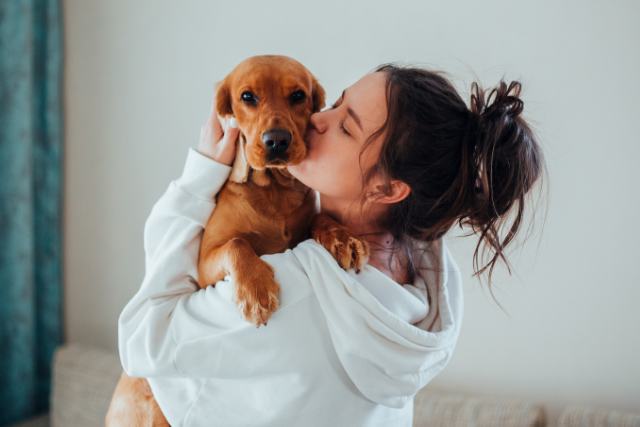
Reassure your dog with gentle, consistent affection. Let them know they are loved and valued members of the family. Physical touch, soothing words, and positive reinforcement can go a long way in comforting a grieving dog.
3. stick to your daily Routine
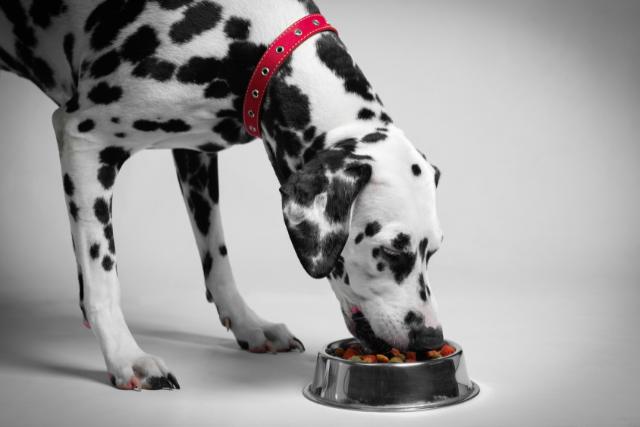
Dogs thrive on routine, so keeping their daily schedule consistent can provide comfort and stability during a time of grief. Stick to regular feeding times, walks, and play sessions to help them feel secure.
4. Keep them active by going on daily walks
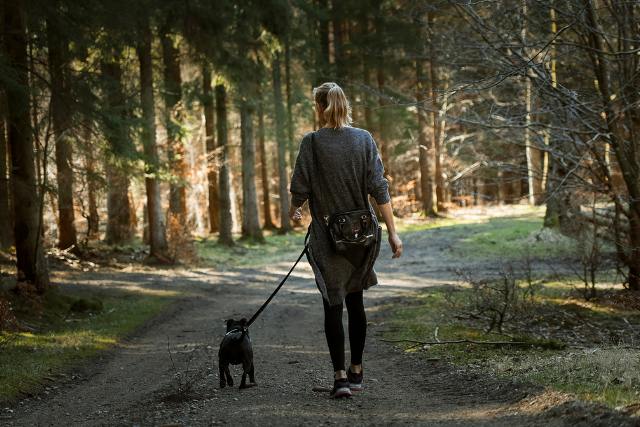
While some dogs might not want to play as much, gentle exercise like short walks or easy games like fetching a ball can help them feel better. Exercise releases chemicals in their brain that can lift their mood.
5. Spend time in silence Bonding with your pet

Spend quiet, quality time with your dog to strengthen your bond and provide emotional support. This could include sitting together while you read or watch TV, or simply being present with them during their quiet moments.
6. Give Them Space to Process Their Feelings
Just like people, dogs need time and space to process their emotions. Give them space to adjust and don’t constantly watch over them. Allow your dog some quiet time alone if they seem to need it. Don’t force them to play or interact if they’re not ready. Let them come to you for comfort when they need it. This helps them process their feelings independently and prevents them from feeling overwhelmed.
7. Stay Present, Be Mindful and Meditate

Stay present with your dog and consider using calming strategies such as meditation or energy healing. Practicing mindfulness and meditation can help create a serene environment that can soothe your dog. Some pet owners also find that energy healing techniques, like Reiki, can help balance their pet’s emotional state and promote relaxation. These approaches can help both you and your dog to stay centered and calm during this challenging time.
8. Create a relaxing space for them to Rest
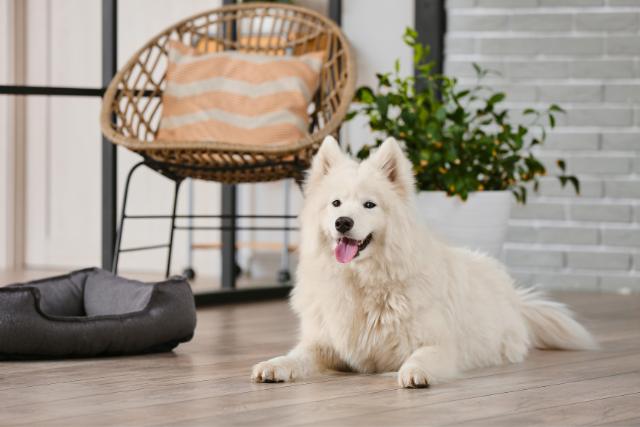
Allow your dog plenty of opportunities for rest and relaxation. Provide comfortable bedding in their safe space and minimize disruptions to create a calming environment where they can unwind.
9. Be Patient and Understanding
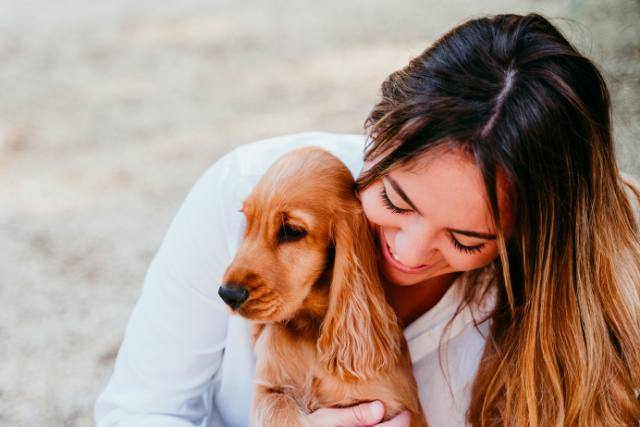
Grieving is a process that takes time, and each dog may heal at their own pace. Be patient with their behaviors and give them time to adjust to the changes at their own speed. They are working through their emotional trauma and sometimes it can feel overwhelming for them. Reassure them and tell them you understand what they are going through and that you love them.
10. Book An animal Communication Session
If your dog is struggling with grief, consider booking an appointment with an animal communicator. They can help you deal with the loss by assisting your dog in processing their emotions, voicing their thoughts, exchanging messages, and providing guidance on how to better support them. An animal communicator can offer insights into your dog’s feelings, helping to create a deeper bond and aiding in their healing process.
11. Pay attention to their Body Language

Dogs communicate through body language, which can reveal a lot about their emotional state. Look for signs such as droopy ears, a tucked tail, or avoiding eye contact, which may indicate sadness or distress. Understanding their cues helps you provide appropriate support.
12. Use Calming Techniques

Consider using calming aids such as playing relaxing music, pheromone diffusers or calming supplements recommended by your veterinarian. These can help reduce stress and anxiety in a grieving dog.
13. Keep an eye on their Physical Health

Grief can sometimes impact a dog’s physical health. Monitor their overall well-being, including appetite, hydration, and any signs of illness or discomfort. Offer them their favorite foods and treats to encourage eating. But if you notice any significant changes speak to your vet.
14. Maintain Positive Interactions
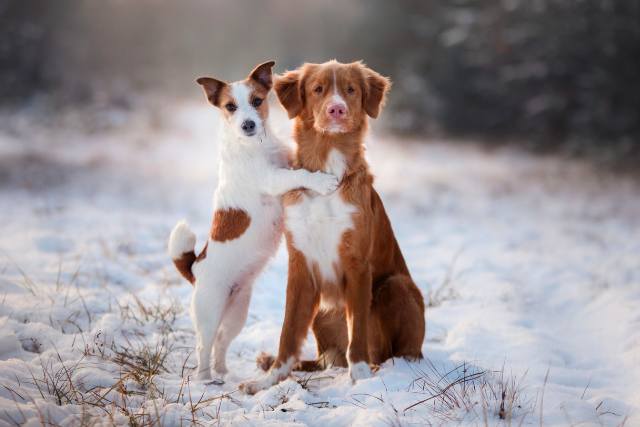
Encourage positive interactions with familiar people and pets. Social interaction can provide comfort and distraction, but ensure it’s at their pace and doesn’t overwhelm them.
15. Play games that Mentally stimulate Them
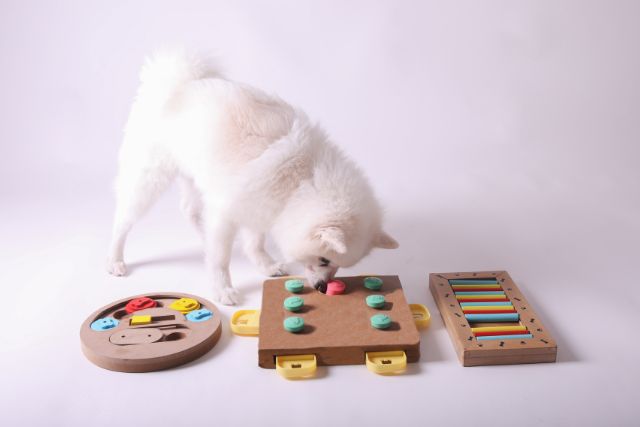
Engage your dog’s mind with puzzle toys, interactive games, or training sessions. Mental stimulation can distract them from their grief and provide a positivtlet for their energy.
By implementing these strategies and offering consistent love and support, you can help your grieving dog cope with loss and gradually return to a more balanced and happy state.
16. Read their Body Language

Dogs communicate through body language, which can reveal a lot about their emotional state. Look for signs such as droopy ears, a tucked tail, or avoiding eye contact, which may indicate sadness or distress. Understanding their cues helps you provide appropriate support.
17. Speak to your local Vet if needed

If your dog’s grief-related behaviors persist or worsen over time, consult with your veterinarian. They can offer guidance, rule out any medical concerns, and provide additional support or recommendations tailored to your dog’s specific needs.
18. Avoid Getting Another Pet Too Soon
After a loss, it might be tempting to get another pet right away, but it’s best to wait. Your grieving dog needs time to adjust and heal. Introducing a new pet too soon can cause stress and make the grieving process harder. Give your dog time to cope with their feelings before bringing another pet into the home.
Final thoughts
Helping a grieving dog can be hard, but your love and patience can really help them. By noticing the signs of grief and giving comfort and support, you can help your furry friend through this tough time.
Each dog grieves in their own way, so be patient and give them the time they need to feel better. With your care, your dog will slowly get back to being happy and playful again.
Has your dog recently lost a loved one? Let me know how you helped them cope with their grief. Leave a comment below, I love reading your messages.





